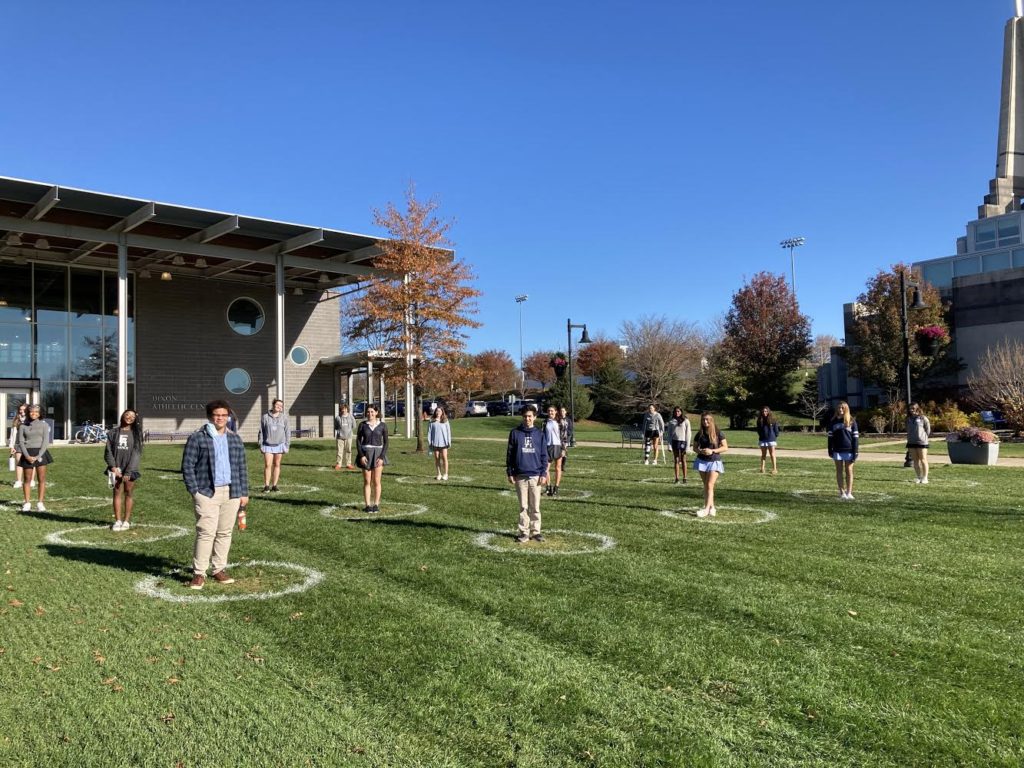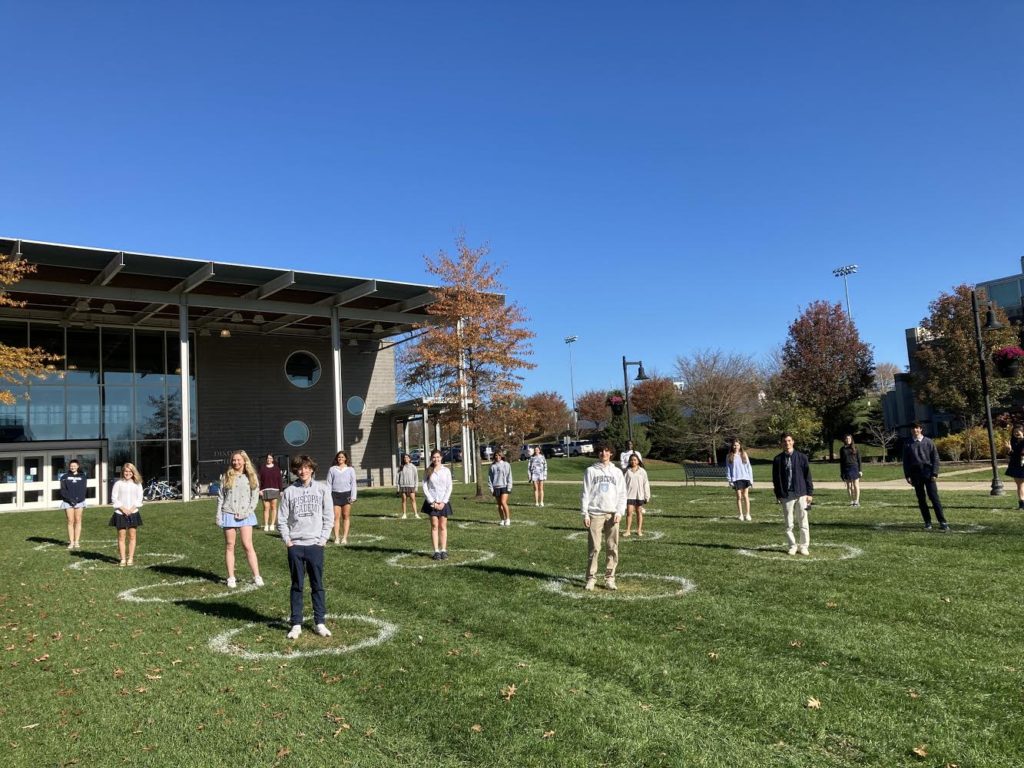Mia Cabral ‘22 | Ava Hendrickson ‘22
The choir program has had to completely readjust its plan for this year because of the difficulties singing poses to health and safety. As Will Hopkins ‘21, one of the choir presidents, describes, “With singing there’s a higher risk because your air spreads farther.” Despite this challenge, the choir program as a whole, led by director Jim Erwin, has been working to accomplish as much as they would have in any other year. That being said, the difficulties posed by COVID-19 on choir have brought both beneficial and unfortunate effects.

Photo courtesy of Ashley Kennedy
Singing spreads aerosol particles, which can be dangerous during a pandemic, but the choir has been able to continue practicing by sending videos and meeting in small groups. Choir students are required to send in videos of themselves from their houses, which is a new form of homework this year. During in-person classes, students are split into two groups, each meeting for half of the class block. This situation puts more responsibility on choir students, as explained by Alaina Guo ‘22. “Learning music this way is so much harder because you can’t rely on other people since the other people in your part are with you but not close enough to fully hear.” With these changes, Guo expresses, “I just think that we are so used to having choir a certain way that any other way doesn’t feel as good to be a part of. But it’s still fun and enjoyable.”
Erwin has discovered numerous positive effects in response to this new way of teaching and providing feedback. “There are some silver linings, like when I hear the individual videos of people’s voices, which you’d never hear in a choir,” explains Erwin. Sona Bardakjian ‘21, also choir president, explains that with everyone being required to submit videos of themselves singing, “You’re able to be held more accountable for learning your part and for submitting videos so I think it’s going well.” In addition, Erwin believes that “there’s something personal about it, in a weird way. There’s a personalization when you look at kids singing in a video that you don’t have in choir. That’s actually something I’ll continue to do after COVID.” However, along with these unexpected positives, there have been equally as many, if not more, negative side effects.
As Hopkins explained, singing poses a larger threat to campus health, which has significantly hindered the extent to which the choir can practice in-person. Bardakjian shares her experience with the consequences of this challenge, saying, “All of us being able to sing full-out together is something that I miss and something I wish we could get back to doing, but it’s better to be safe and to take these precautions now so that we can get back to normal hopefully later in the future.” She continues to explain why the COVID-19 safety measures placed on choir are so difficult for students, stating, “ It’s frustrating and sad and it’s upsetting to know that something that you love so much is considered one of the most dangerous things that you could do in these times.”
While nothing is set in stone, Erwin continues to make tentative plans for upcoming performances, in whatever capacity possible. Erwin shares that, “I would love some kind of Lessons and Carols, and I would love a winter concert.” Additionally, if a live performance is impossible, Erwin is considering continuing to use videos to present his choir’s work. “If I can talk kids into loving the idea of filming themselves and being active because they see the product, I am hopeful that that could be like an artistic film,” explains Erwin. Hopkins also shares a possible way to hold a performance, saying, in regards the the Christmas concert, “We might hold it in the chapel where everyone can spread apart and be socially distanced, and then have a limited amount of audience members, or just no one there, and livestream it to a broadcast that people can tune into and watch us sing.”
Erwin explains why he thinks it’s so important for the choir program to remain as strong as it can, saying, “I think it’s so important for us to be able to express ourselves with our voices because it’s just so human and that’s what we never want to lose, our humanity and our connectedness and the way that we collaborate with one another to make a product.” He goes on to say that, “We can not give up on that stuff. It’s just so important for our well-being and for our confidence and for how we feel about ourselves and the world around us.”
